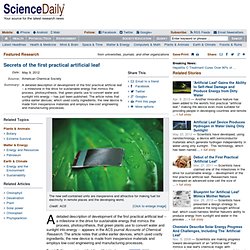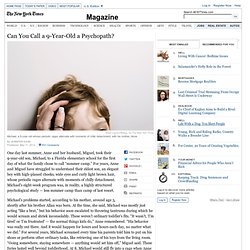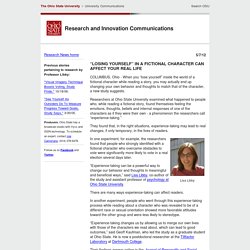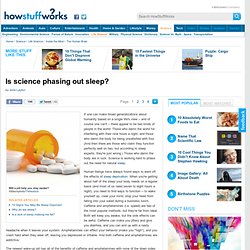

Wind Map. Helix Snake's top 50 favorite Skate 3 clips. World's Largest Rope Swing. Dream Lines Part III - Wingsuit proximity by Jokke Sommer. Para skiing.mp4. The Potato Cannon. The Didgeridoo - How To Make A Didgeridoo. Shatter beer bottles: Bare-handed bottle smash. Dry Ice ERUPTIONS! How to Create Experimental Explosions! - Joe Genius. Flower Pot Fridge!
Construction of a levitating bed. Otters Fighting with a Crocodile. Dolphins Name Themselves With Whistles, Study Says. May 8, 2006 Dolphins give themselves "names"—distinctive whistles that they use to identify each other, new research shows.

Scientists say it's the first time wild animals have been shown to call out their own names. What's more, the marine mammals can recognize individual names even when the sound is produced by an unfamiliar voice. Bottlenose dolphins appear to develop so-called signature whistles as infants (just for kids: bottlenose dolphin fun facts). The idea that they use these whistles to identify each other was first proposed in 1991 after individuals were heard to make their own unique sounds. "The challenge was to show experimentally that the animals can use these independent voice features as signature whistles," said Vincent Janik of the Sea Mammal Research Unit at the University of St. Janik is the lead author of a study on the dolphin whistles to be published tomorrow in the journal Proceedings of the National Academy of Sciences. Listening Dolphins. Ultra-efficient LED puts out more power than is pumped in. MIT physicists have been testing a light-emitting diode that has an electrical efficiency of more than 100 percent.

You may ask, "Wouldn't that mean it breaks the first law of thermodynamics? " The answer, happily, is no. The LED produces 69 picowatts of light using 30 picowatts of power, giving it an efficiency of 230 percent. That means it operates above "unity efficiency" -- putting it into a category normally occupied by perpetual motion machines. However, while MIT's diode puts out more than twice as much energy in photons as it's fed in electrons, it doesn't violate the conservation of energy because it appears to draw in heat energy from its surroundings instead. In slightly more detail, the researchers chose an LED with a small band gap, and applied smaller and smaller voltages. Don't miss: Let there be LED: The future of the light bulb. Secrets of the first practical artificial leaf. A detailed description of development of the first practical artificial leaf -- a milestone in the drive for sustainable energy that mimics the process, photosynthesis, that green plants use to convert water and sunlight into energy -- appears in the ACS journal Accounts of Chemical Research.

The article notes that unlike earlier devices, which used costly ingredients, the new device is made from inexpensive materials and employs low-cost engineering and manufacturing processes. Daniel G. 1,000,000,000,000 Frames/Second Photography - Ramesh Raskar. Flying object propels itself by flipping inside out. Redefining Reality: Psychology, Science and Solipsism. The Zen teacher Chuang Tzu dreamed he was a butterfly.
When he woke, he wondered, "Am I a man who dreamt about being a butterfly, or am I really a butterfly who now dreams about being a man? " The fundamental question regarding the nature of reality is partly philosophical, partly spiritual, part psychological, and partly scientific in nature. Neuroscience and Moral Responsibility. Can You Call a 9-Year-Old a Psychopath? Elinor Carucci/Redux, for The New York Times Michael, a 9-year-old whose periodic rages alternate with moments of chilly detachment, with his mother, Anne.

Michael’s problems started, according to his mother, around age 3, shortly after his brother Allan was born. 'Losing Yourself' In A Fictional Character Can Affect Your Real Life - Ohio State Research and Innovation Communications. COLUMBUS, Ohio - When you “lose yourself” inside the world of a fictional character while reading a story, you may actually end up changing your own behavior and thoughts to match that of the character, a new study suggests.

Researchers at Ohio State University examined what happened to people who, while reading a fictional story, found themselves feeling the emotions, thoughts, beliefs and internal responses of one of the characters as if they were their own - a phenomenon the researchers call “experience-taking.” Who do you feel is the most underappreciated person in history? : AskReddit. Download Section.
The Agricultural Revolution: Crash Course World History #1. James Cameron Now at Ocean's Deepest Point. At 5:52 p.m. ET Sunday (7:52 a.m. Monday, local time), James Cameron arrived at the Mariana Trench's Challenger Deep, members of the National Geographic expedition have confirmed. The Legend of Cliff Young: The 61 Year Old Farmer Who Won the World’s Toughest Race - Elite Feet. The legendary story of Cliff Young is already known to many runners.

If you aren't familiar with it, you're in for a fascinating read. An Unlikely Competitor Cliff Young. Professor Walter Tschinkel makes a Molten cast of an Ant Colony. Is science phasing out sleep?" If one can make broad generalizations about humanity based on a single life's view -- and of course one can't -- there appear to be two kinds of people in the world: Those who damn the world for interfering with their nine hours a night, and those who damn the body for being unsatisfied with four.

(And then there are those who claim they function perfectly well on two, but according to sleep experts, they're just wrong.) Those who damn the body are in luck: Science is working hard to phase out the need for natural sleep. Human beings have always found ways to ward off the effects of sleep deprivation. When you're getting about half of the sleep your body needs on a regular basis (and most of us need seven to eight hours a night), you need to find ways to function -- to wake yourself up, clear your mind, stop your head from falling into your salad during a business lunch.
The 20 most-watched TED Talks to date. Experimental Error: Most Likely to Secede. #WHATSHOULDWECALLGRADSCHOOL. Shout out to organic chemistry. Video: I’m a Chemist and I Know It. Great Day To Be An Athlete. Whatshouldultimatecallme.